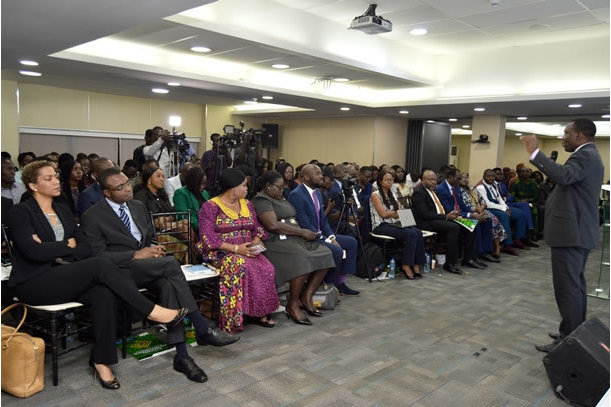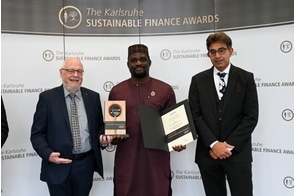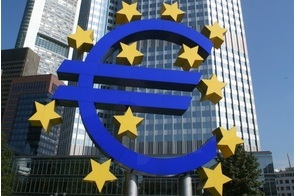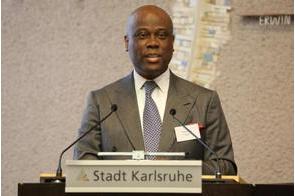Access Bank hosts summit on global responsible banking principles

Summary
To gather stakeholder feedback from Africa during the public consultation period, Access Bank hosted the UNEP FI Regional Consultative Forum on April 29-30.
The United Nations has identified climate change as the single biggest threat to sustainable development. The Sustainable Development Goals (SDGs) and the Paris Agreement are two frontline frameworks for promoting and achieving sustainable and low-carbon development to help society mitigate, and in some situations avoid, the effects of global warming and climate change.
The Paris Agreement, which entered into force on 4th November, 2016, did set a goal of limiting increase in global average temperatures to 2 degrees Celsius (°C) or 3.6 degrees Fahrenheit (°F) above pre-industrial levels by the end of the century. However, urgent action is now needed to set that target as close as possible to 1.5°C above pre-industrial levels. Whilst achieving the SDGs requires meeting the Paris Agreement's target, it also entails taking other non-climate-related actions that will help to achieve an inclusive society and prosperity for all.
Many areas of these agendas require financing from both the public and private sectors. Financial institutions particularly have an important role to play in achieving the Paris Agreement and the SDGs. In fact, the UN has estimated that the gap in financing to achieve the SDGs is $2.5 trillion per year in developing countries alone. Given the important role of financial institutions in closing the financing gap, the United Nations Environment Programme – Finance Initiative (UNEP FI) was established as a partnership between United Nations Environment and the global financial sector with common sustainability goals.
Beyond finding scope to finance a sustainable future, the financial services industry also has responsibilities in maintaining and promoting a sustainability culture. This is why it became important for UNEP FI to launch the Principles for Responsible Banking (PRBs), thereby, providing the global standard or benchmark for banking institutions to know what it takes to be responsible banks. 28 leading banks, which jointly account for more than $17 trillion in assets, came together to establish the PRBs under UNEP FI.
The banks, which span five continents, include Access Bank Plc, BNP Paribas, Barclays Plc, ING Group, Societe Generale, Standard Bank Group and Arab African International Bank.
Launched in November 2018 at its Global Roundtable in Paris, UNEP FI said the principles are designed specifically for banks. The objectives of the PRBs is to properly align the role of banks with SDGs and the Paris Agreement, while providing guidance on how these agendas can be achieved. Essentially, the principles are designed to enable banks drive sustainable and low-carbon economies, and enhance shareholder value in the process. The PRBs will also enable banks build trust with stakeholders, including investors, customers and employees.
As one of the founding bank CEOs on the PRBs, Herbert Wigwe, Group CEO of Access Bank, said, “There is a greater need now, more than ever, to promote sustainability in the global financial sector. This is therefore the right time to launch the Global Responsible Banking Principles. At Access Bank, we are committed to setting standards and engendering innovative solutions that address social, economic and environmental challenges. We believe that the Sustainable Development Goals will be better achieved if we can work together, using these principles as a guide.”
Following the launch of the PRBs is a six-month global public consultation period before they will be signed by banks from around the world at the UN General Assembly in New York in September 2019. To gather stakeholder feedback from Africa during the public consultation period, Access Bank hosted the UNEP FI Regional Consultative Forum on April 29-30. The two-day forum, which held at the bank's head office in Lagos, was themed “Financing Sustainable Development.”
The event brought together sustainability thought leaders across the continent. Among those who presented keynote addresses and participated in panel discussions were, Princess Adejoke Orelope-Adefulire, Senior Special Assistant to President Muhammadu Buhari on SDGs; Prof. Kenneth Amaeshi, Director of the Sustainable Business Initiative at the University of Edinburgh Business School, Scotland. Others were Bekeme Masade-Olowola, CEO of CSR-in-Action; Olumide Orojimi, Corporate Communications Manager at Oando; Ndidi Nnoli-Edozien, Group Chief of Sustainability and Governance at Dangote Industries Limited; Jide Akintunde, Managing Editor of Financial Nigeria; among others.
The event, which is the first-ever sustainability summit to be held in Nigeria, provided an opportunity to promote awareness on – and improve capacity with regard to – the SDGs in the financial services industry and beyond. It also provided a platform for sustainability practitioners to be apprised of global sustainability trends and best practices. Equally important was the objective of the summit to facilitate the commitment of the financial sector in Nigeria and Africa to adopt the PRBs.
Access Bank is not only facilitating awareness on sustainability, the bank has also demonstrated its commitment to financing the SDGs. In her welcome address, Omobolanle Victor-Laniyan, Head of Sustainability at Access Bank, expressed the bank's full commitment to the PRBs, which the bank has demonstrated through its investment across multiple sectors, including health and education, in the various communities that Access Bank serves.
“Access Bank is renowned for its commitment to sustainability, leading several initiatives and contributing to many others, including the development of the Global Responsible Banking Principles," said Mrs. Victor-Laniyan, who is also a Member of the PRB's Core Group. "The urgent need to scale up investments and access to finance for sustainability-focused projects, foster strategic collaboration to drive collective action and leverage on all available platforms to champion sustainability cannot be overstated.”
The areas covered by the six Principles for Responsible Banking launched by UNEP FI include strategic alignment; impact; clients and customers; stakeholders; governance and target-setting; and transparency and accountability. The first principle, which is strategic alignment, requires banks to integrate the SDGs, the Paris Agreement and other relevant national, regional or international frameworks into their business strategies and key business decisions. The second principle requires banks to continuously assess and improve the impacts of their operations on people and the environment.
Under the third principle, banks are enjoined to encourage their customers and clients to undertake a transition towards sustainable business models, technologies and lifestyles. This dovetails with the fourth principle, indicating that banks have a responsibility of not only meeting their own sustainability targets. Indeed, they are also required to ensure the operations and practices of their stakeholders demonstrate social responsibility and environmental consciousness. Such actions by the banks will boost their social and environmental impacts.
A key requirement of the PRBs is setting targets – which must be in line with the SDGs, Paris Agreement and other relevant frameworks – and publishing of those targets as they are being accomplished. Achieving the principles, including the one on target-setting, requires putting in place effective governance procedures. The sixth principle requires banks to be transparent and accountable. This entails building trust between banks and stakeholders, especially in a society where trust in banks has been severely damaged.
In underscoring the importance of responsible banking, UNEP FI – through the PRBs – calls on financial institutions to endorse and sign up for the principles with the understanding that the success of banks is predicated on the long-term prosperity of the communities they serve. Access Bank is taking the lead in promoting these principles in Africa.
Martins Hile is Executive Editor, Financial Nigeria
Related
-
Sustainability is transforming Nigerian financial institutions
Access Bank was the first African commercial bank to be sustainability certified by the European Organisation for ...
-
The changing climate of central banking
Many central banks have yet to join the Network for Greening the Financial System.
-
Banking and finance in the era of 4.0
This is the new age of 4.0. Strategy, therefore, must be focused on finding innovative ways to access the ecosystems of ...










